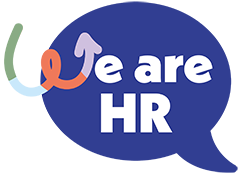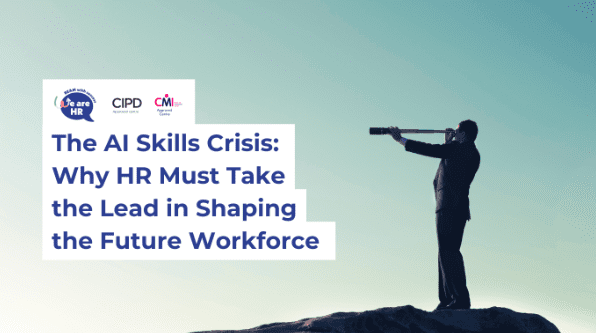Table Of Contents
- The AI Skills Crisis: Why HR Must Take the Lead in Shaping the Future Workforce
- A Wake-Up Call for HR: The Age of AI Is Here
- What the Data Really Says (and Why It Matters)
- Why This Isn’t Just an IT Problem; It’s HR’s Moment
- AI’s Promise: High Hopes, Low Results
- Jobs Aren’t Vanishing, They’re Evolving
- The Skills Shift: What Employers Are Really Looking For
- From Training to Lifelong Learning: L&D Needs a Rethink
- Creating a Learning Culture: Where Growth Feels Safe
- What HR Professionals Can Do Today
- Let’s Build the Future Together
A Wake-Up Call for HR: The Age of AI Is Here
Artificial intelligence has made the leap from sci-fi to spreadsheets. It’s in our inboxes, our analytics tools, our recruitment platforms, and even in the way we manage performance reviews. But behind the shiny new tech is a very real problem: we simply don’t have enough people who know how to use it.
And this isn’t a slow-burning issue. It’s already here, affecting businesses of all sizes across every sector. The good news? HR has never been better positioned to take the lead.
What the Data Really Says (and Why It Matters)
In May 2025, Nash Squared and Harvey Nash released their latest Digital Leadership Report, the longest-running global survey of its kind. And the results are striking.
Here’s what stood out:
- AI is now the most in-demand tech skill in the UK, up from fifth place in just 18 months.
- 52% of tech leaders said they’re struggling to recruit AI talent, a 114% jump from last year.
- 89% of organisations are actively investing in or piloting AI projects.
- And yet, 69% have not seen measurable returns from their AI investment.
This isn’t just a “tech department” issue. It’s a whole-organisation capability gap. And unless we act quickly, we risk spending millions on tools without the talent to use them effectively.
Why This Isn’t Just an IT Problem; It’s HR’s Moment
If you’ve worked in HR for more than five minutes, you’ll know that transformation doesn’t stick without people. Tech might enable change, but it’s HR that makes it happen.
This is a defining moment for the profession. It’s our chance to reshape roles, reskill teams, and rethink how people learn and grow at work. As strategy expert Di Gates aptly said in the report:
“If HR doesn’t do this, who will?”
She’s right. We have the tools. We have the insights. What we need now is the courage and the commitment to act.
AI’s Promise: High Hopes, Low Results
Let’s talk about the elephant in the boardroom: despite all the hype and investment, most companies haven’t seen meaningful results from their AI experiments. Why? Because many jumped into AI without first preparing their people.
The gap isn’t in ambition; it’s in execution.
Interestingly, large firms (those with tech budgets over $500 million) are beginning to see returns. But they’re the exception, not the rule. For the rest, it’s a lesson in the limits of automation without adaptation.
The takeaway? AI won’t fix broken processes or bad habits. It amplifies them. That’s why building human capability must go hand in hand with adopting digital tools.
Jobs Aren’t Vanishing, They’re Evolving
It’s easy to worry that AI will make our jobs disappear. But the reality is much more nuanced. AI isn’t replacing people; it’s reshaping what their jobs look like.
The report found that companies furthest along in AI adoption are 21% more likely to be growing their tech teams, not shrinking them. In hiring, 61% of tech leaders said they’d rather take on someone with two years’ experience and strong AI skills than someone with five years and none.
That’s a fundamental shift in how we value experience.
What this tells us is that adaptability and curiosity are becoming just as important as expertise. And that opens the door for a broader, more inclusive talent pipeline, if we’re willing to invest in it.
The Skills Shift: What Employers Are Really Looking For
So what skills are actually in demand?
- Cybersecurity skills have jumped by 43% in demand, as threats evolve alongside tech.
- Data fluency is increasingly crucial for roles beyond IT; think HR analytics, operations, and marketing.
- Meanwhile, traditional software engineering has seen an 8% dip, as automation tools handle more of the basics.
For HR, this means rewriting job descriptions, rethinking career pathways, and redesigning development programmes with the future in mind.
From Training to Lifelong Learning: L&D Needs a Rethink
The old way of doing training – booking a course, ticking a box, and moving on – isn’t going to cut it anymore. AI demands continuous learning, embedded into the rhythm of everyday work.
That could look like:
- Short, focused microlearning modules delivered via your internal platforms
- Regular knowledge-sharing sessions between teams
- Peer mentoring programmes to build AI confidence from the ground up
- Role-based development pathways linked to strategic business goals
HR and L&D leaders must move from one-off workshops to ecosystems of learning that are agile, accessible, and always evolving.
Creating a Learning Culture: Where Growth Feels Safe
Learning is emotional. If people don’t feel safe to experiment, make mistakes, or ask “silly” questions, they won’t engage with new tools or ways of working, no matter how well-designed the training is.
Culture matters.
As HR consultant Gemma Bullivant explains, real change happens when learning is built into the flow of work, not tacked on as an afterthought. It also means building trust, modelling vulnerability, and celebrating progress, not just perfection.
Creating a culture of learning is just as important as delivering the learning itself.
What HR Professionals Can Do Today
Whether you’re in a large corporate or a growing SME, here’s how you can start making an impact:
- Run a future-skills audit: Identify gaps in digital literacy, AI awareness, and learning habits.
- Get buy-in from leadership: Make the business case: AI fluency drives growth and innovation.
- Make learning visible: recognise and reward those who upskill and share knowledge.
- Partner with learning experts: Work with trusted providers (like us!) to tailor L&D to your needs.
- Start small but start now: A 30-minute workshop can kickstart big shifts.
Let’s Build the Future Together
This isn’t just another HR trend. This is a once-in-a-generation transformation of how we work, learn, and lead.
And the good news? HR doesn’t need to do it alone.
At We-are-HR, we support professionals at every stage of their journey. Whether you’re just entering the field or leading change in your organisation, our CIPD and CMI-accredited qualifications will give you the tools, confidence, and community you need to make a difference.
🎓 Explore our HR and leadership programmes.
🚀 Join a network of future-ready professionals.
💡 Lead the change: don’t just react to it.
📩 Email: info@we-are-hr.com
🌐 Website: www.we-are-hr.com
Let’s shape the future of work together.


